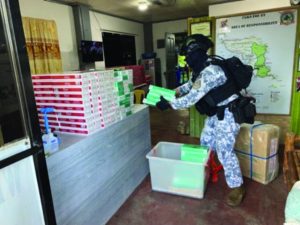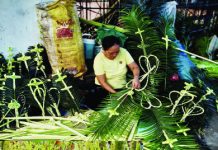BIR losses tax due to illegal activity

TACLOBAN CITY – Eastern Visayas is rapidly becoming a hotspot for the illegal cigarette trade, significantly contributing to the rising smuggling incidence in the Visayas region, which now has a 6%, according to the National Tobacco Administration (NTA).
Among the provinces in Eastern Visayas, Biliran has the highest rate of illegal tobacco sales, accounting for 6% out of 100% of all cigarettes sold, followed by Southern Leyte at 3.7%, based on NTA data covering the second quarter of this year, as released on October 4.
Smuggled cigarettes, primarily sourced from Malaysia and Indonesia, are sold at significantly lower prices, which has led to a steep decline in government revenue from tobacco taxes.
The Bureau of Internal Revenue (BIR) in Eastern Visayas estimates that the government has lost P183.3 million in unpaid excise taxes from 2018 to 2023 due to cigarette smuggling.
BIR Regional Director Edith Yap underscored the challenges of combating the smuggling of illegal cigarettes, pointing to the country’s extensive coastline and numerous entry points, as well as the public’s preference for cheaper alternatives.
“Being an archipelagic country with multiple entry and exit points, it is difficult to completely block the influx of smuggled goods. On top of that, Filipinos tend to opt for lower-priced products. A legitimate brand of cigarettes can cost as much as P1,700 per pack, while illegal ones are sold for just P360,” Yap said during an interview. on October 8.
To tackle this issue, Yap said the BIR is collaborating closely with other government agencies, including the Philippine National Police, the Coast Guard, and the Bureau of Customs, to curb the illegal trade.
The NTA also reported that the rampant smuggling of cigarettes has severely impacted government revenues from the tobacco industry, which have dropped from P176 billion in 2021 to just P135 billion in 2023.
Estimates from both Congress and the BIR suggest that the illicit tobacco trade is costing the government between P60 billion and P100 billion annually.
In response to this growing problem, President Ferdinand Marcos Jr. has directed government agencies to intensify their efforts to eliminate the illegal tobacco trade.
Also, on Sept.26 of this year, the President signed the Anti-Agricultural Economic Sabotage Law, which classifies tobacco as a protected commodity.
Under this law, offenses related to tobacco smuggling are now considered acts of economic sabotage, carrying severe penalties, including non-bailable charges.
JOEY A. GABIETA/LIZBETH ANN A. ABELLA



